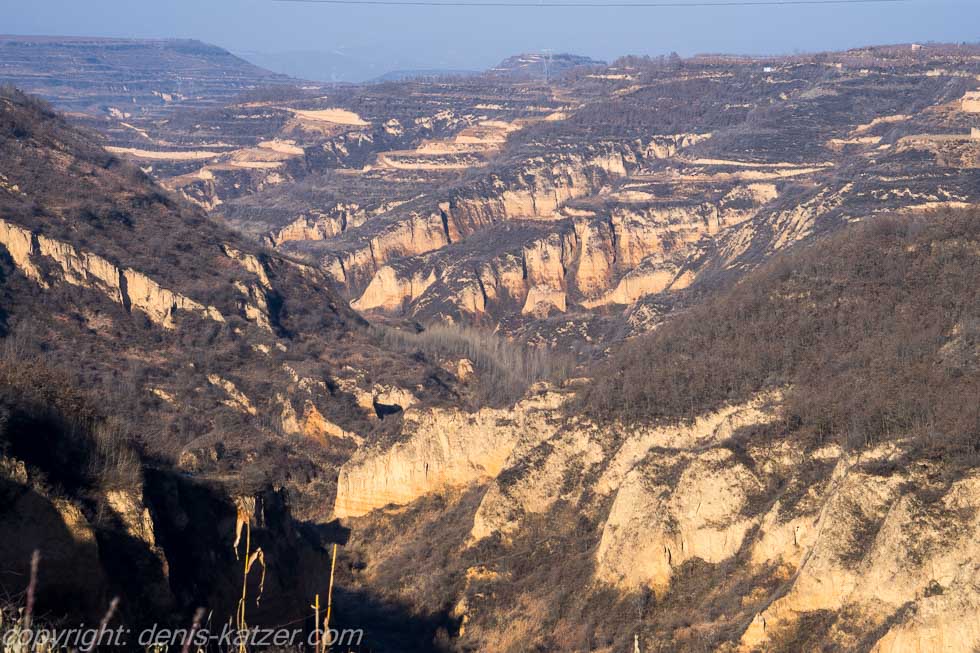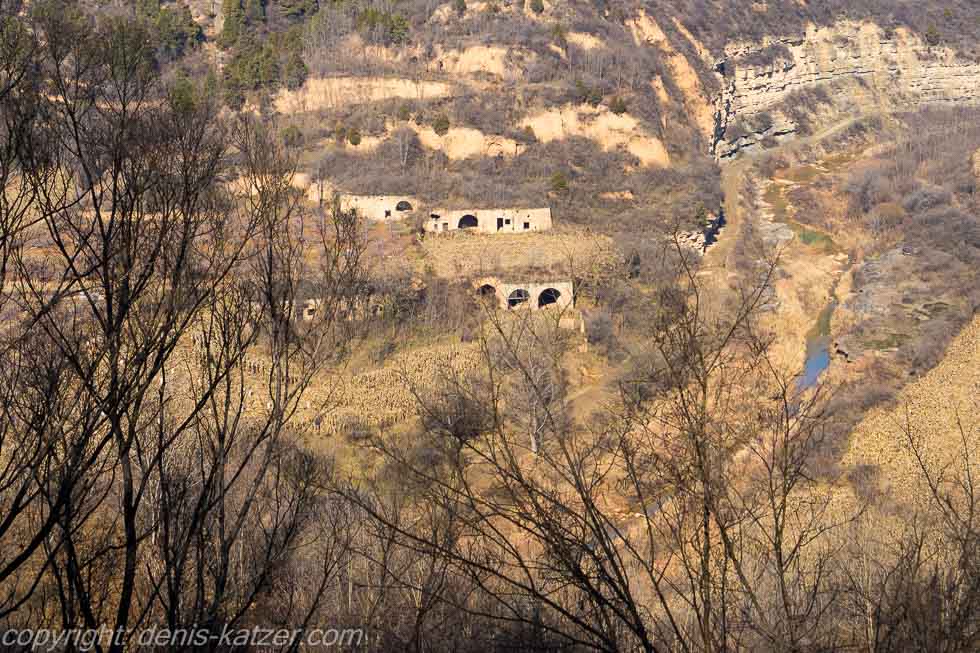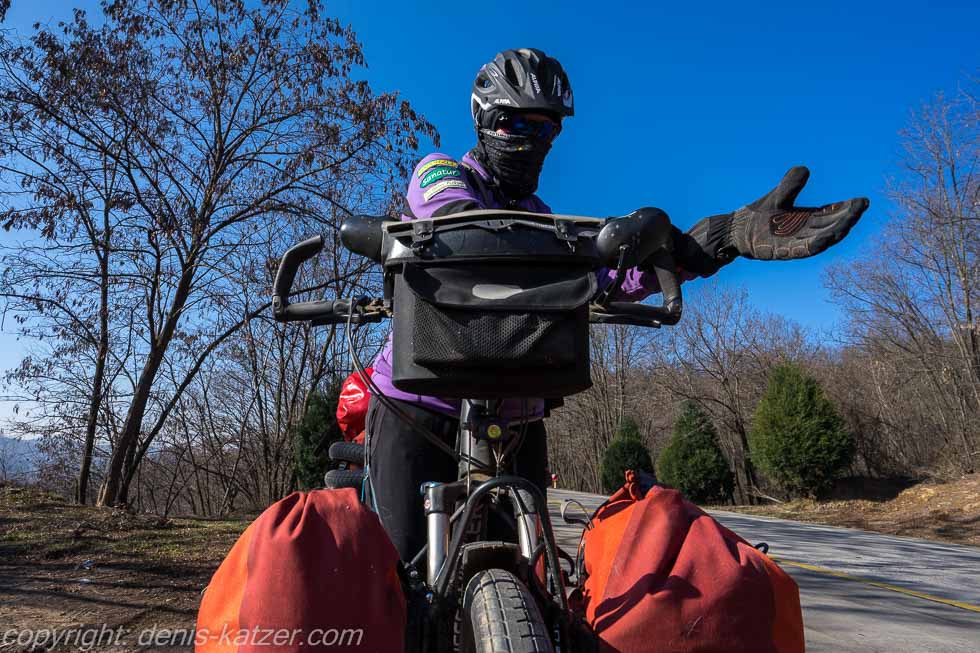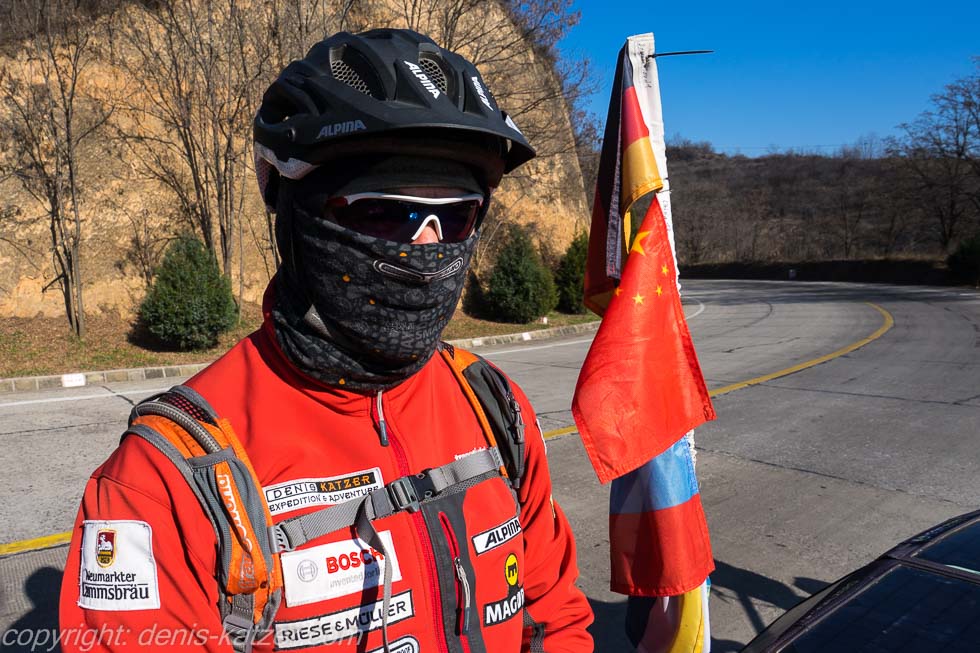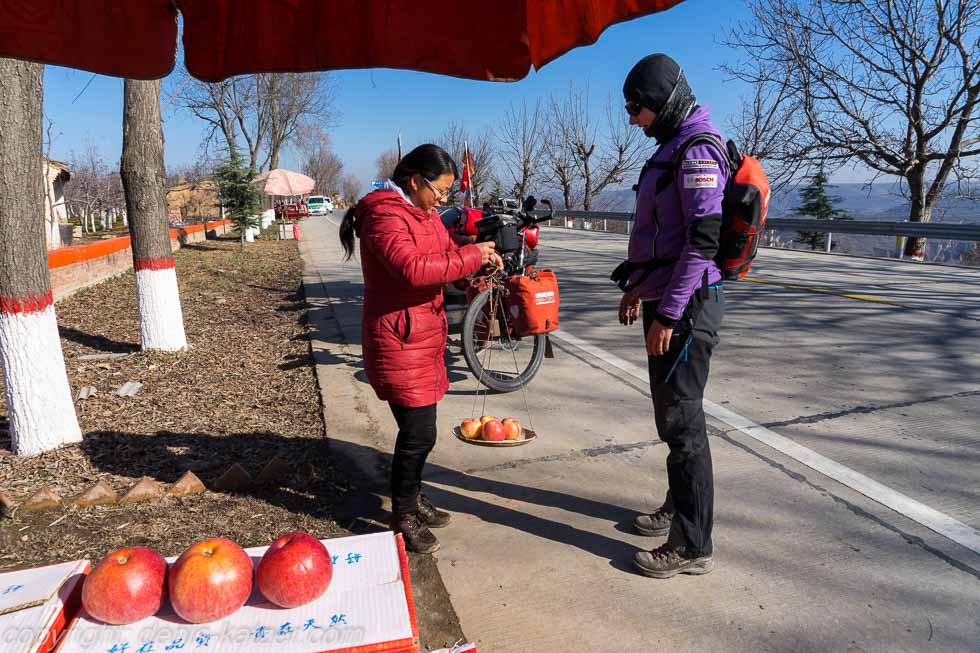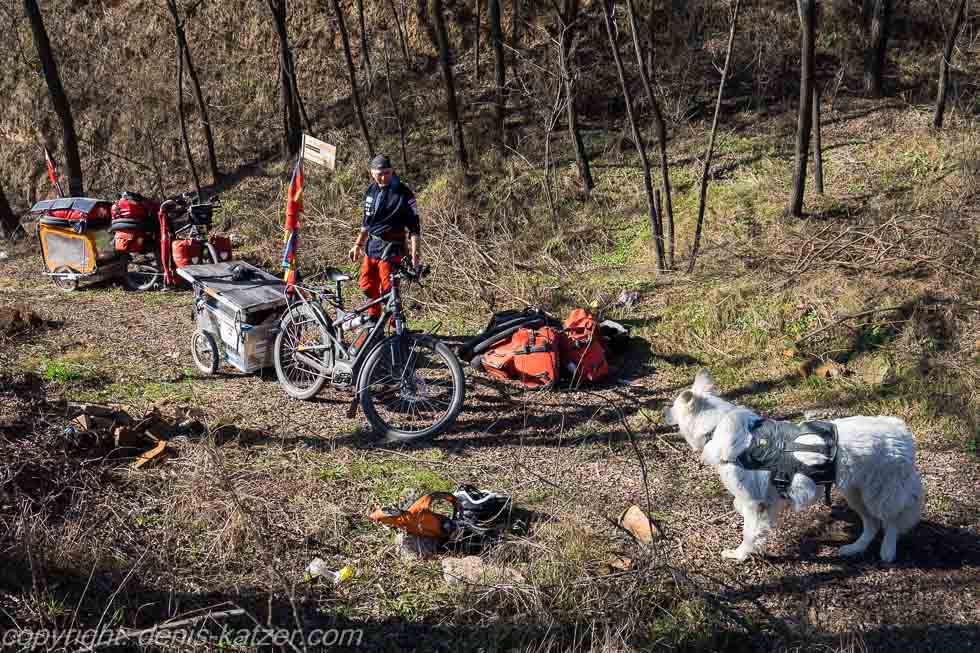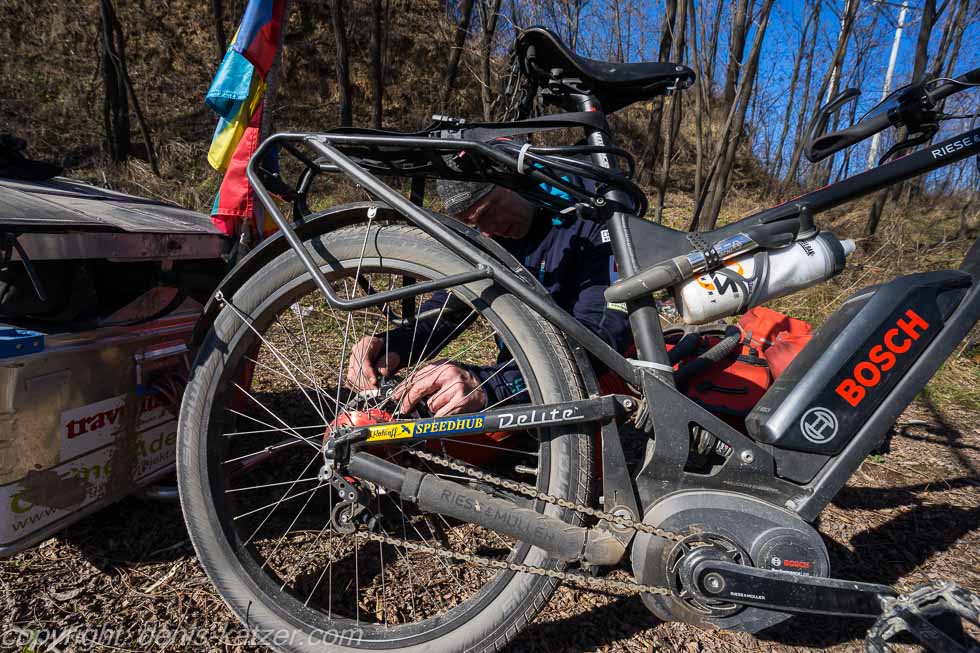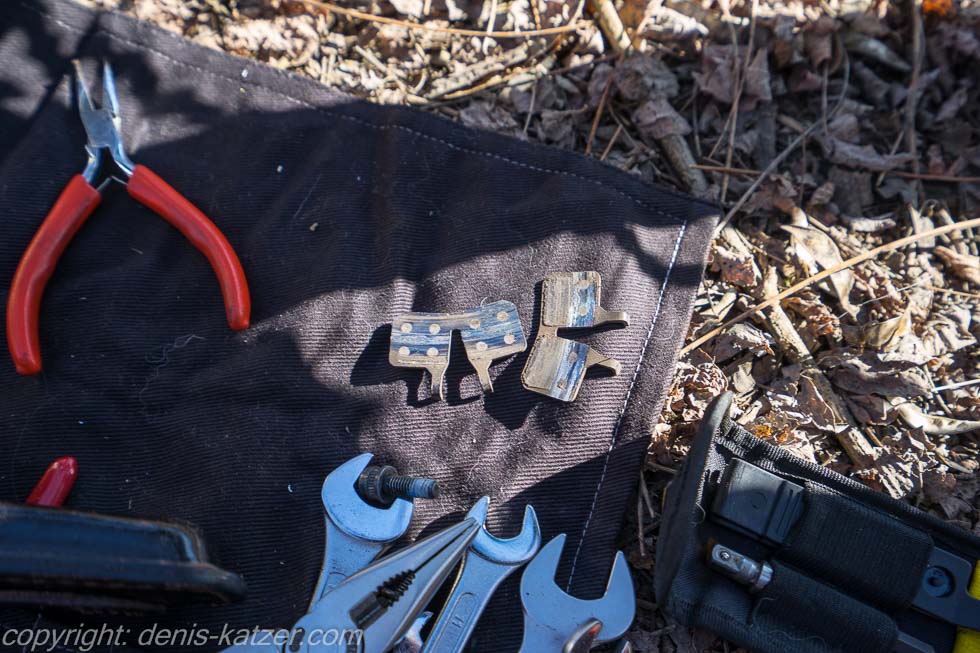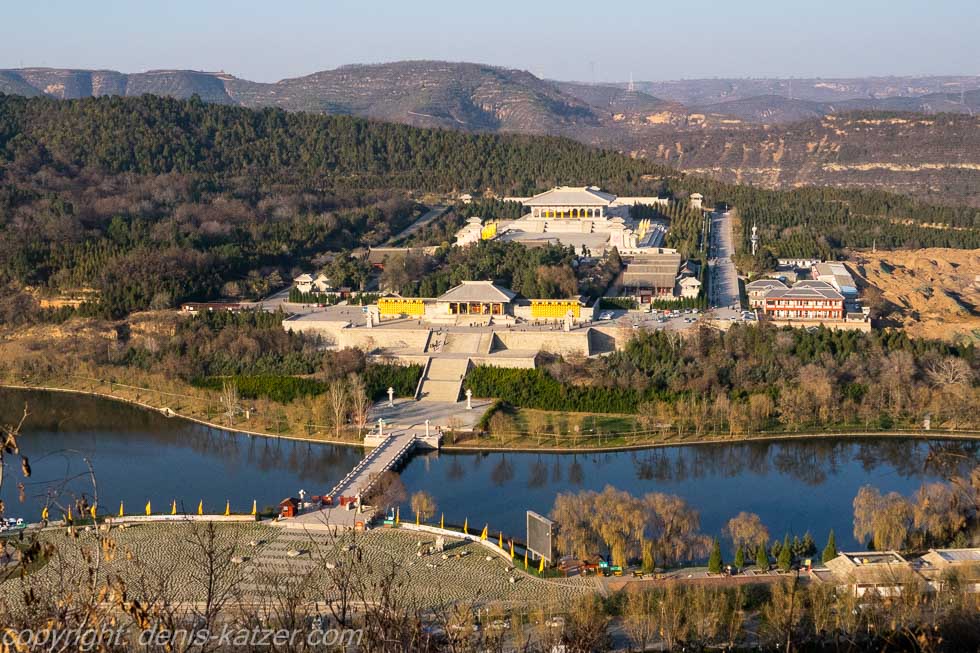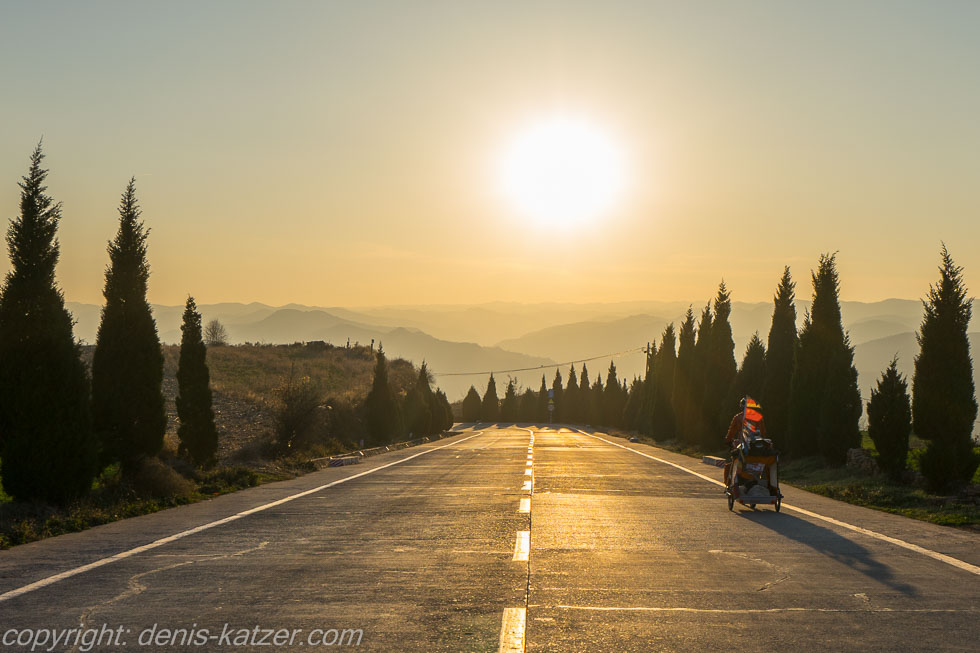
Rattling lungs – Throbbing hearts – Never-ending incline
N 35°23'54.1'' E 109°06'44.9''
Date:
27.11.2015 to 28.11.2015
Day: 152-153
Country:
China
Province:
Shaanxi
Location:
Yijun
Latitude N:
35°23’54.1”
Longitude E:
109°06’44.9”
Daily kilometers:
122 km
Total kilometers:
11,232 km
As the crow flies:
71.40 km
Average speed:
21.6 km
Maximum speed:
47.4 km
Travel time:
5:37 hrs.
Soil condition:
Asphalt
Maximum height:
1.500 m
Total altitude meters:
12.898 m
Altitude meters for the day:
1.500 m
Sunrise:
07:29 am
Sunset:
5:32 pm
Temperature day max:
8 °C
Temperature day min:
minus 4 °C
Departure:
09:30 a.m.
Arrival time:
6:00 pm
(Photos of the diary entry can be found at the end of the text).
We leave the dreadful accommodation early. At 9:30 am, the first kilometers are behind us. Shortly after the town limits, the Qin Ling Mountains rise again to over 1,500 meters. Our muscles are immediately warmed up and the Bosch motor gives us a fast ascent with its performance. In temperatures of around minus 4 degrees, we cycle along a kind of high dam that stretches across the ridge of the mountain range. With blue skies and clear views, we enjoy the imposing gorges that open up to our left and right. Apple trees grow in the somewhat wider areas, which expand into veritable plantations when the mountain slopes do not plunge 500 meters into the depths. Small stalls are set up at the side of the road selling fresh, red-cheeked apples, which seem to thrive magnificently up here. We stop and buy some of the delicious, sweet fruit. Then we continue our journey. Since we crossed the Qin Ling Mountains, Mother Earth has gifted us with beautiful, largely undestroyed nature.
We let our bikes roll into one of the many valleys just as Tanja’s brakes start to squeal terribly. We stop immediately to get to the bottom of the unhealthy noise. Because I can’t immediately diagnose the cause at first glance, we push our roadtrains into a wooded area bordering the road. “Wow,” I say as I realize that the brake pads are completely worn out. “You must have noticed that the braking power has diminished,” I wonder. “Nope, everything worked perfectly,” Tanja replies. “Hm, it’s a good thing you didn’t have to brake hard. That would be fatal on a mountain pass like this. Your rear brake had zero braking effect,” I say and put in new pads.
We have barely continued our descent when a car suddenly drives out of a parking lot onto the road right in front of Tanja. I can just hear Tanja’s tires locking up and see her bike and trailer lurching in the rear-view mirror. I stop immediately. “Are you all right?” “Phew, that was close. That idiot cut me off. If you hadn’t changed the brake pads, there would have been a crash,” she replies excitedly. We realize how lucky Tanja has just been and how lucky she was to have replaced the pads just minutes before. Or was it not luck? Was it destiny? Divine protection? Coincidence? You could discuss this at length. In any case, the fact is to nip any emerging problems in the bud immediately. Above all, check the bikes for any loose bolts, wear and tear or technical defects before every ride.
The sun is already low and bathes the asphalt in front of us in a golden light. Once again we wind our way along countless hairpin bends into a valley. Although our destination for today, the small town of Yijun, is only 71 km as the crow flies from our morning starting point, our on-board computer already shows 120 kilometers covered and 1,500 metres in altitude. “Is that Yijun over there?” asks Tanja, pointing to a few of the typical Chinese skyscrapers, their black, jagged silhouettes crowning a mountain peak. “I hope,” I reply, panting heavily, as we’re already heading back up. We reach the town, which was actually built on the highest point of a hilltop, in complete darkness. The road forks in front of us. “Left or right?” asks Tanja. “Hm, I wish I knew,” I reply. “What does your gut say?” “Well, if that’s how it goes, we should turn right, but the coordinates I fed into the GPS this morning clearly point to the left,” I reply, which is why we stick to them and turn left. “Fortunately, things are going downhill here,” says Tanja happily. “Luckily,” I confirm. Suddenly the street lighting stops. It’s getting darker and darker. “I can only hope that our accommodation is right next to the main road,” I say, looking at the lights of Yijun shining from the hilltop to the right, far above our heads. After another kilometer, I start to wonder. According to the GPS, the accommodation should be right here. However, because we always receive inaccurate coordinates from the hotels, it can happen that our overnight accommodation is up to 500 m away from its actual position. If you imagine a circle, the distance from the edge of the circle to the edge of the circle can even be one kilometer. And a kilometer seen at 360 degrees is a large space in which a house can hide. Especially in a densely built-up Chinese city. Well, that’s nothing new on our trip. Yijun, however, stretches over a mountain ridge. This makes our search much more difficult. “I think we have to go up there,” I say meekly, looking up at the lights above us, which seem to be grinning at us mischievously. “You should have listened to your gut feeling.” “Yes, yes, I know, but the facts were against it,” I defend myself and ask a passer-by where our hotel is to be on the safe side. “Nali,” (There) he says and points upwards.
A small alley rises up in front of us. “You can’t get up there on your bikes,” we understand the man, who tells us to ride further down into the valley and then take a main road back into town. “This road here is far too steep. I’ll never make it,” says Tanja, looking at the alley disappearing into the darkness. “You can do that in any case. Put it in first or second gear and go full throttle. Then you’ll climb up like a mountain climber. The Bosch motor won’t let you down,” I say. “I hope you’re right,” doubts Tanja. “Okay, on my command!” I shout. As I feel tired and listless at this point, I try to sound confident. We pedal like wild beasts and push ourselves upwards at four or five km/h. Our bikes wobble and Ajaci squeals with delight. Because we are in a city and don’t want him to be run over, he has to stay in the trailer. We work our way up bit by bit, meter by meter. As the ascent is literally swallowed up by the night, there is no end in sight. Our lungs rattle, our heart beats like crazy, pumping blood into our veins and supplying it with the oxygen it needs. Then suddenly a speed bump, one of the unpleasant speed bumps, lies across the road. “Pedal!” I shout to motivate Tanja to maneuver her heavy bike over the barrier. If the speed bump stops them, there is no chance of another start on this incline. Because there is nowhere to park the bike or lean against it, I would be forced to ride up to the top to leave my precious e-bike unattended. Then I would have to rush down to Tanja to push her road train up with her. But Tanja masters the violent speed breakers, which now stretch across the road every 15 meters without coming to a halt. Our muscles run hot, but are so well trained that they don’t over-acidify and shut down. Fortunately, no vehicles come towards us on the winding, narrow incline. We make it all the way to the top. Completely exhausted, we stand there gasping for air. Then we find the strength and clap our right hands together in victory. “Great,” I say. Tanja grins. “Yes, great,” she replies. Our hotel is located just 100 meters from the steeply ascending road. The staff open the double doors and for the first time on this trip we are allowed to roll our fully loaded bikes, including trailer, into the lobby. Only when we are inside, in the cozy warmth, do we start unloading. Nimble hands help us carry the many bags into the room. Unfortunately, it smells of rotten food again, but we don’t care that evening. Because the mattresses are really hard, I blow up my sleeping mat to put it on the bed. “I don’t know how you can sleep on such an uncomfortable thing,” I wonder. “Mattresses that are too soft are not for me,” is Tanja’s dry answer. To avoid spraining my tailbone, I sit down carefully on her bed for the night and am amazed to almost sink into it. “Man, your mattress is so soft. Soft mattresses aren’t for you,” I say and then realize that a board has been pulled in on my side so that I can continue to use the old, worn-out comforter. “Ha, ha, ha, I was wondering why you were complaining about the hardness,” Tanja snorts with laughter.
The next morning I wake up with a sore throat and a headache. Maybe I got cold in the cold accommodation in Yan’an? Or is it due to yesterday’s overexertion? We decide to rest for a day. I’m sitting in my folding chair and writing about our experiences when suddenly the heating breaks down and it gets uncomfortably cold. At reception we are told that the heating in this house is only used at night. I spend the hours writing, freezing. Certainly not good for my cold…
The live coverage is supported by the companies Gesat GmbH: www.gesat.com and roda computer GmbH www.roda-computer.com The satellite telephone Explorer 300 from Gesat and the rugged notebook Pegasus RP9 from Roda are the pillars of the transmission.
